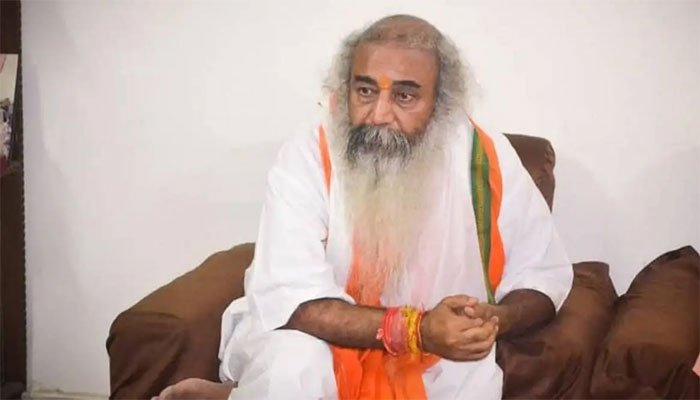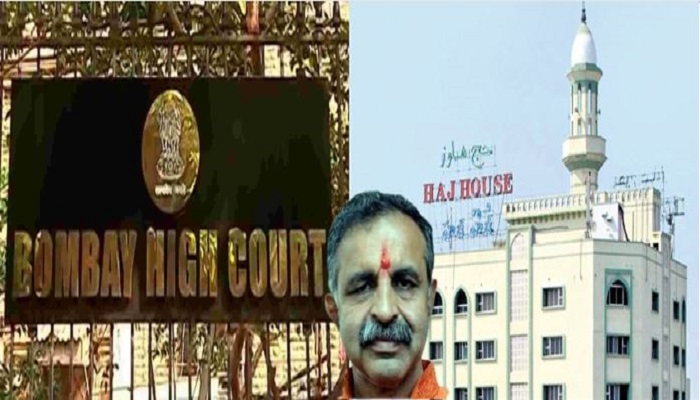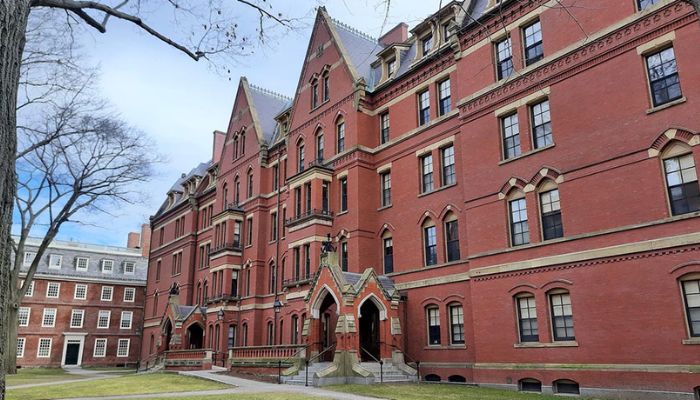Allahabad HC says temple construction on private land protected under Constitution

[ad_1]
On August 9 August 9, Allahabad High Court said that the right to construct a Temple on private land is protected under Articles 25 and 26 of the Constitution of India. The court further observed that such construction cannot “offend” the religious sentiments of any other community. The judgment by the bench of Justice Salil Kumar Rai and Justice Surendra Singh came in a 2016 matter where Congress leader Acharya Pramod Krishnam Ji Maharaj was given permission to construct Kalki Bhagwan Temple on private plots without obtaining permission from the district administration. Notably, Acharya Pramod has made headlines for Muslim appeasement.
The district magistrate in Sambhal halted the temple’s construction after a Muslim leader objected. The district magistrate had restrained Acharya Pramod from constructing the temple in 2016 and 2017 on the apprehension that it would disturb the area’s communal peace and public order.
Acharya Pramod bought the land with a plan to build the Kalki Dham Temple in Achora Kambo village of Sambhal district in 2016. However, the National President of the Muslim Kisan Union, Inamur Rahman Khan, objected to it, claiming the Muslims in the area did not want the construction to happen. He approached District Magistrate in the matter, after which the DM passed a stay on construction.
An application to recall the 2016 order was dismissed by the DM office in 2017, saying that Sambhal was a communally sensitive area and the temple’s construction might disturb law and order. The DM stated that Acharya Pramod could not claim Freedom of Religion under Articles 25 and 26 of the Constitution of India.
The District Magistrate further pointed out that if people visit the temple, they will encroach on the government land around the plots for parking. Furthermore, a mosque just 144 meters away from the proposed temple site led to opposition from the Muslim community. The DM added that a Kalki Temple already existed 20 KM away from the proposed site.
Also, any regulatory authority did not sanction the plan of the Temple and the Zila Panchayat of Sambhal or the Nagar Palika, which also became a reason for staying on the construction of the DM.
Acharya Pramod approached High Court against the DM orders. In the petition, Pramod’s counsel argued that the orders by DM were based on assumptions and not evidence. In its judgment, the court noted there was no dispute regarding the title of the petitioner over the land. Furthermore, the court observed the case was not of any religious group that would hurt the religious sentiments of any other religious group or community.
The court noted there was no evidence presented in the court on record that would show any substantial opposition by the Muslim community, and even if there was any opposition, “mere construction of a Temple by any person on his private property cannot offend the religious sensibilities of any other community.”
The court observed, “The right of the petitioner to construct a Temple on his private property is protected by Articles 25 and 26 of the Constitution, and there is no evidence that the construction would have disturbed public order or was against morality or would be inimical to public health. As noted earlier, there is nothing on record to show that the petitioner, by constructing a Temple intended to insult any other religious community, and mere objection by a few persons belonging to other religions cannot be a ground to restrict the rights guaranteed under Articles 25 and 26 of the Constitution of India.”
The court said the district administration has the right to exercise its power under the CrPC, including the powers under Section 144 of the CrPC, if any communal disturbance happens after the temple’s construction. Furthermore, it is DM’s duty to protect the fundamental rights of every citizen.
Acharya Pramod and his Muslim appeasement
Interestingly, a controversial Congress leader, Acharya Pramod, once said, “Nahi hai jo Mohammad ka, humara ho nahi sakta.” (People who are not followers of Prophet Mohammad cannot be together with us). His statement came in 2017 while Muslims in Sambhal opposed Temple construction on his land.
वोट के लिए क्या क्या करना पड़ता है- लखनऊ से कांग्रेस के लोकसभा उम्मीदवार कह रहे हैं कि “नहीं है जो मोहम्मद का हमारा हो नहीं सकता ” सुने @DrKumarVishwas के अंदाज़ में @AcharyaPramodk का आपत्तिजनक कविता पाठ। pic.twitter.com/qIdUNVqZ5H
— Vikas Bhadauria (@vikasbha) April 28, 2019
In June 2017, while addressing an event, ‘Acharya’ Pramod made a shocking communal statement and said, “People who are not followers of Prophet Mohammad cannot be together with us”. Interestingly, these videos became viral in the run-up to the 2019 Lok Sabha elections in Uttar Pradesh after ABP journalist Vikas Bhaduria shared them.
Pramod Krishnam is also known for his severe Muslim appeasement. Claiming to be an ardent follower of Hazrat Ali, son-in-law of Prophet Mohammad, Krishnam has also attempted to polarise the elections by seeking votes based on religion. As the Congress party has fielded him as a candidate from the Lucknow Lok Sabha constituency, Pramod Krishnam has been busy appeasing Lucknow’s Shia community voters by reciting songs and prayers on Hazrat Ali during his campaigning.
On April 28th April, Pramod Krishnam speaking to Kabil Sibal-backed Tiranga TV, went on to question the Narendra Modi government for promulgating an ordinance three times on the issue of Triple Talaq and not once on Ram Mandir. By deliberately ignoring that Triple Talaq has been declared illegal by the Supreme Court and Ram Mandir issue is still being sub-judice, Pramod Krishna resorted to propaganda by falsely comparing a religious issue with a socio-gender issue of Triple Talaq.
[ad_2]
Source link



